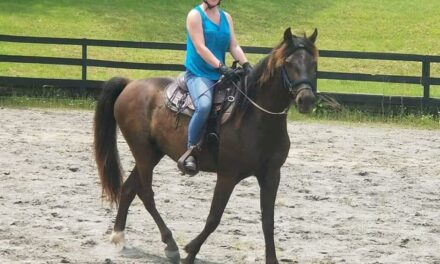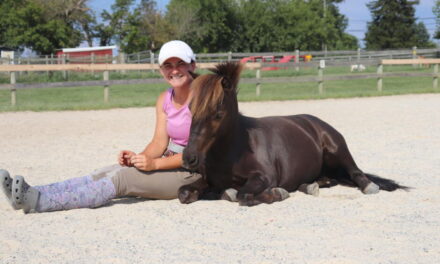by Kimberly K. Egan, MHC Co-President & Co-Chair of the MHC Government Relations Committee (first published in the March 2022 Equiery)
The Maryland General Assembly is about half way through its 2022 session. The deadline for filing new bills passed in mid-February, and the current bill count is at 2,343 as of this writing.
Bills MHC Supports
Public Trail Access (SB 86): Sen. Katie Fry Hester (D-Howard) pre-filed a bill on our behalf that would require tenants of any property owned by the MD Dept. of Natural Resources to maintain a border around the leased property sufficient to allow unobstructed access to trail heads by first responders and trail users. The bill was approved unanimously by the Senate’s Education, Health & Environmental Affairs Committee, and passed the Senate with a unanimous floor vote. It now proceeds to the House of Delegates.
Right to Engage in Equine Activities (HB 116/SB 345): MHC testified in support of these bills to acknowledge that “equine activities are a valued part of the state’s historical, cultural and social heritage that provide unique, recreational benefits to residents of the state.” The bill says that “it is the intent of the General Assembly that residents of the state have a right to engage in equine activities subject to regulations and restrictions under laws that the General Assembly enacts.”
Helmet Law for Minors (HB 713): MHC testified in support of this bill prohibiting an adult from allowing a minor to ride a horse on public property without wearing a “properly secured” ASTM-certified helmet. The requirement would not apply to minors who are “practicing for, riding to or from, or competing or performing in a show or event where helmets are not historically part of the show or event; crossing a public highway that separates privately owned land; or engaged in an agricultural practice or pursuit.”
Urban Agricultural Zones (HB 156): MHC submitted written testimony in support of a bill to permit local jurisdictions to direct USDA Conservation Innovation Grant funds to 501(c)(3)s that, among other things “(i) support opportunities for local economic development associated with urban agricultural activities . . . .” Horses are considered livestock under Maryland law, which means that horse farms qualify as “agricultural” uses. MHC testified that this bill could, if passed, benefit equine non-profits that offer services in Baltimore City (such as MHC-member City Ranch) or in the close-in D.C. suburbs (such as MHC-member Wheaton Park Stables).
Southern Maryland Agricultural Development Commission (SB 378): MHC submitted written testimony in support of this bill which would, if passed, appropriate $900,000 to the Southern Maryland Agricultural Development Commission (SMADC). SMADC publishes the Southern Maryland Horse Extra, an on-line guide that lists each of the Southern Maryland stables that are licensed by the Maryland Horse Industry Board, as well as the area’s hay and feed suppliers; tack shops; veterinary, dental, and farrier services; clinicians, coaches, and judges; equine clubs and organizations; and riding trails.
Fair Hill Special Event Area Funding (HB 658): MHC submitted testimony in support of this bill, which would, if passed, appropriate at least $1.8 million every year to maintain the grounds and facilities at Special Event Area at Fair Hill. The Special Event Area hosts the Maryland 5 Star at Fair Hill as well as the Fair Hill steeplechase races, among many other events.
Great Maryland Outdoors Act (SB 541/HB 727): MHC submitted written testimony in support of this omnibus bill to improve State Park access and opportunities by implementing the 2021 Glendenning Commission Report. The bill, if passed, would create a Park System Critical Maintenance Fund and would fund it with $80 million, and it would create a Parks & Recreation Commission to include 4 members appointed by the Governor to “reflect the racial, gender, ethnic, and geographic diversity of the State.”
The bill would also create a Park Systems Capital Improvement & Acquisitions Fund and fund it with $70 million, broken down as follows: (i) $5 million for flood barriers, forest buffers, green spaces, and similar; (ii) $5 million for historic preservation; (iii) $20 million for transportation improvements including “bike lanes and trails”; (iv) $10 million for improving access to water; and (v) $30 million for land acquisition in central and southern Maryland to relieve overcrowding and improve access “to State parks and outdoor recreation.”
Of particular interest to our trail riders, the bill would create and staff a Volunteer Management Program modeled on the National Park Service’s Volunteers-in-Parks program to among other things, conduct annual volunteer training, develop and promote volunteer opportunities, and produce an annual report on volunteer statistics.
Each of these initiatives has been a particular focus of MHC’s Trails & Greenways Committee over the last several months. Those of you who have participated in our Trails & Greenways Town Halls will know that the potential this bill has to solve many of our multi-use trail concerns is both promising and heartening.
Maryland the Beautiful Act (SB 791/HB 1031): MHC submitted testimony in support of this bill which would, if passed, create a $10 million Local Land Trust Revolving Fund to help land trusts buy property for conservation purposes. The bill also sets various conservation goals so that by 2040, 40% of all “lands in the State” would be permanently conserved.
Winery & Vineyard Economic Development Grants (SB 594): MHC submitted written testimony in favor of this bill which would, if passed, appropriate $1 million to a new Winery and Vineyard Economic Development Grant Program. The new program would administer grants equal to 25% of the qualified capital expenses incurred by wineries or vineyards. This bill could benefit those wineries that are housed on horse farms, such as The Vineyards at Dodon and MHC-member Hidden Hills Farm and Vineyard.
Bills MHC Supports With Amendments
Rodent Harborage (HB 263): This bill would allow private citizens to sue their neighbors for damage caused by “rodent harborage,” defined as “a condition that provides sustenance or shelter for mice and rats, promotes their reproduction and continued existence on a property, [or] creates or contributes to property damage . . . .”
MHC submitted testimony requesting an amendment because although the bill excepts properties “zoned for agricultural use,” it does not except barns, meadows, storage sheds, and the like on property that is not “zoned for agricultural use.” “Agricultural use” is not a term used in the zoning regimens in many counties; many counties allow “farming” in almost all zoning districts other than commercial office space, retail, and manufacturing and industrial zones. We suggested that the bill be amended to exempt properties “where agricultural activities or farming, including the keeping of livestock and poultry, is permissible under local law or regulation.”
Agricultural Assessments (SB 567/HB 1282): MHC submitted written testimony on this bill, which would, if passed, qualify improvements on land that used for agricultural purposes to be assessed as agricultural property, as long as they are used for (i) producing value-added agricultural products, including but not limited to dairy; (ii) producing alcoholic beverages; or (iii) agritourism. The assessment would be retroactive, and the bill would authorize tax refunds under certain circumstances. We requested that the bill be amended to add “equine activities” as defined by state law to the list of uses that qualify for the assessment.
Cost of Care (SB 877/HB 1062): MHC submitted written testimony on this bill, which would establish procedures to allow an “authorized officer or agent of a humane society or a police officer, or other public official required to protect animals” to recover reasonable costs of care from the owner or custodian of a seized animal. MHC’s testimony was “favorable with amendments.” Although we support establishing a legal process where seizing agencies can require owners of the seized animals to cover the cost of their care, where warranted, we requested amendments to ensure that owners of seized animals be given information on how to ask the court to get their animals back, as well as an amendment to ask the court to revisit the question of whether the seizing agency should have continued possession at a point when the actual cost of care – at some point down the road – is being revisited.
Bills MHC Opposes
Sunday Hunting bills: MHC has historically opposed bills to expand Sunday hunting on the grounds that there should be at least one day a week during the hunting seasons on which horse people can ride without the risk of injury or interference from hunters, on public land or on adjacent private land. We are doing the same this year. Unlike years past, the Sunday hunting bills this year are mostly not just about deer; all but two of them are all species, all seasons, which means 52 Sundays a year.
MHC is also opposing a bill that would allow year-round Sunday hunting throughout the state, on both public and private land. This is the most sweeping Sunday hunting bill in years. MHC is also testifying in opposition to Sunday hunting bills in seven counties this session; Caroline, Calvert, Charles, Prince George’s, Queen Anne’s, Somerset, and Talbot. All except PG and Talbot would allow hunting on all 52 Sundays of the year. PG, which currently has no Sunday hunting, would get Sunday deer hunting from Oct. to mid-Jan. The Talbot bill would allow Sunday deer hunting Oct. to mid-January, plus during the spring turkey season. MHC is also opposing a bill to permit state-wide migratory bird hunting on Sundays.
* * * * *
MHC’s Government Relations Committee meets every week during the legislative session. We will summarize the session’s activities in each issue of The Equiery, and we will also provide regular updates in our twice-monthly member newsletter.
MHC’s legislative positions are driven by the concerns of our members. If you would like to join the dialogue, please become a member by visiting www.mdhorsecouncil.org/join.











